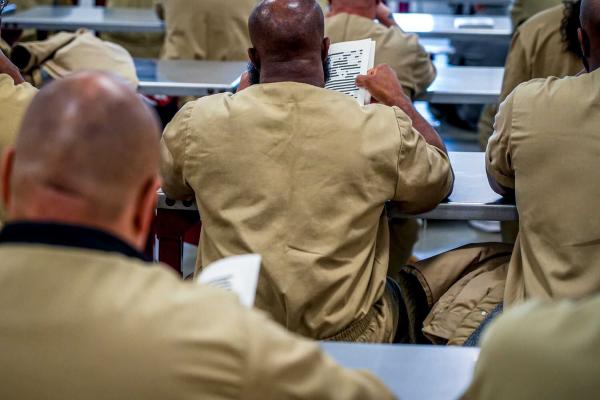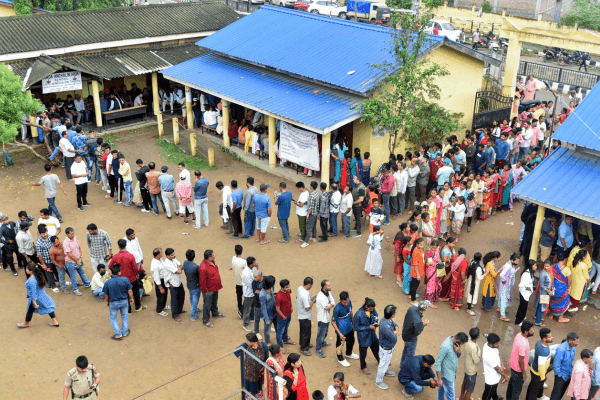“For to us a child is born, to us a son is given,” Isaiah prophesies of the coming Christ child — a child who will be called “Prince of Peace” (Isaiah 9:6). That Prince of Peace would later proclaim in his Sermon on the Mount, “Blessed are the peacemakers, for they shall be called children of God” (Matthew 5:9). Advent calls us to explore how we can pursue peace in our own lives — how we can better become instruments of peace in our communities, nation, and the world. Right now, the prospect for peace feels particularly challenging in light of an ongoing pandemic, rampant violence, and intrastate conflict across the globe.
According to the United Nations, “conflict and violence are currently on the rise […] Unresolved regional tensions, a breakdown in the rule of law, absent or co-opted state institutions, illicit economic gain, and the scarcity of resources exacerbated by climate change, have become dominant drivers of conflict.” The UN Refugee Agency (UNHCR) reports that at the end of 2020, there were more than 80 million people forcibly displaced worldwide as a result of persecution, conflict, violence, or human rights violations. A quickly growing regional crisis in the Sahel region of Africa, including the countries of Mauritania, Mali, Burkina Faso, Niger, and Chad, displaced nearly three-quarters of a million people in 2020 alone. The Syrian war has continued for more than a decade, displacing nearly 7 million people. The conflict that broke out between Armenia and Azerbaijan in 2020 displaced tens of thousands.
Those at risk in the violence suffer from a severe lack of public attention and outcry. The Council on Foreign Relations tracks an overwhelming list of conflicts that we should be praying and acting on — conflicts that are unlikely to show up in front-page headlines or social media feeds: political instability in Iraq, Egypt, Venezuela, and Lebanon; the escalating conflict between Ukraine and Russia; the ongoing occupation of Palestine; the war in Yemen; civil war in Libya and South Sudan; the persecution of the Rohingya people in Myanmar; instability in Afghanistan, and more.
I’ve seen this oversight most acutely in coverage of the crisis in Ethiopia, where civil war has been raging for more than a year. UNHCR estimates that upwards of a million people have been internally displaced by the conflict. My heart also breaks for the estimated 5.2 million people in Ethiopia’s Tigray region facing extreme food insecurity; without a significant increase in humanitarian aid, these people face a famine as severe as the region’s 1983-1985 famine, which killed at least 1 million people. According to Foreign Policy magazine, “The conflict is rooted in and has been exacerbated by historical identity-based territorial contestations between the neighboring Amhara and Tigray regions and by Tigray-Eritrea animosities.” Andrew DeCort, a Christian ethicist and founder of the Institute for Faith and Flourishing in Addis Ababa, describes it as “the virus of hateful othering,” infecting everything from religious life and workplaces to family relationships.
Tragically, hateful othering has sparked and exacerbated so many conflicts, often tied to historical injustices and a vicious cycle of vengeance and animosity. The major parties in the conflict have committed “widespread human rights abuses including sexual violence, starvation as a weapon of war, and ill-treatment of the displaced,” according to a letter written by coalition of aid and advocacy organizations. It is imperative that we maximize political and diplomatic pressure to cease hostilities, allow unrestricted humanitarian access, and ensure that human rights for all Ethiopians are respected and protected. “There can be no victory through force of arms,” said a joint statement signed by Sojourners, “and perpetuation of the war will burden the people of Ethiopia with bearing the terrible cost of this conflict for generations.”
Following the Prince of Peace requires not only giving our attention to and praying for an end to the violence, but also playing an active role in peacemaking by using our voices to generate greater social and political will to prevent and end these conflicts. While the complex root causes of war can seem intractable, we must bring to bear the resilience and passion of our faith. The Catholic Nonviolence Initiative, of which Sojourners is a founding member, is one hopeful initiative. This fall, CNI released a 40-page guide to effective nonviolent strategies for legislators, advocates, and policymakers to explore how to promote nonviolent options in response to violent or potentially violent conflict. While nonviolent options have proven to be effective at interrupting conflict around the globe, governments have invested billions of dollars in weapons and military preparedness; investment in nonviolent strategies has been negligible in comparison. Policymakers have at their disposal a broad array of nonviolent tools that have been developed and implemented by governments, regional and international organizations, churches, and civil society. They simply must choose to use them.
Got something to say about what you're reading? We value your feedback!








